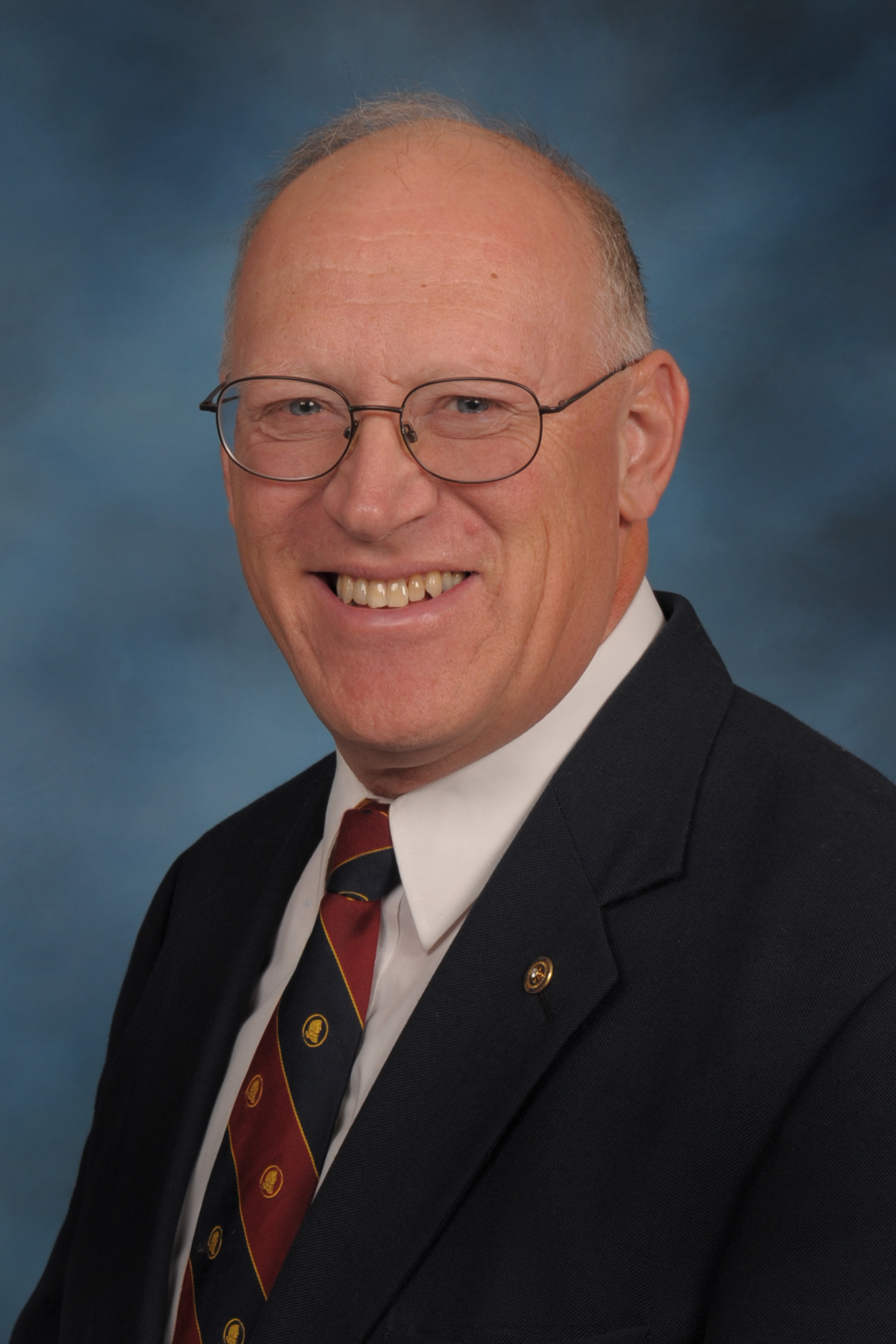 By Ron Wilson, director of the Huck Boyd National Institute for Rural Development at Kansas State University.
By Ron Wilson, director of the Huck Boyd National Institute for Rural Development at Kansas State University.
The woman in New York pours her liquid laundry detergent into the washing machine. She doesn’t realize that one element of her laundry soap came from a product transported by a machine built halfway across the country in rural Kansas. It’s today’s Kansas Profile.
Karl Matlack is president of Stinger, Inc., a family-owned company which is a leader in building equipment for moving hay for feed and biomass. The Matlack family farms near Burrton. “Our farm has been in the family since 1884,” Karl said.
In the mid-1980s, Karl’s father Larry and uncle Bill started putting up alfalfa into large square bales, but they lacked a good way to pick up and transport those huge one-ton bales.
“Our first unit came from the necessity to pick up the bales in our own fields,” Karl said. Rather than using multiple tractors to load and unload, the Matlacks wanted a self-loading machine. On an old school bus chassis, they built a unit with a tilted bed and put a front-end loader with bale spears in front of the cab to load the bales.
That first unit worked so well that some of their neighbors and hay customers wanted one too. In 1992, the company rented space in nearby Haven and started producing and improving these units. Because those original bale spears on the front resembled the stinger on a bee, the company was named Stinger.
Karl Matlack grew up on the farm, studied engineering at K-State, and returned to the family business. After more than 20 years growing the company, Larry and Bill retired. Karl is now president of the company and his brother Justin is in charge of sales. Bill’s son Jake is now vice president of the company. Bill’s other son Paul resides in Olathe and is also an owner.
Essentially the Stinger units are high speed, self-propelled wagons with a loader arm in the front for loading the bales onto the angled bed in the rear. To unload, the hydraulics tilt the bed and stack the bales for storage, or a rear tailgate can be lowered so that the bales slide off into position. “It’s kind of like a big slipper slide for hay bales,” Karl said with a smile.
As the company grew, it purchased the building in Haven where it operates today. In 1998, company leaders faced a decision: Should they continue to put their equipment onto salvaged truck and bus chassis, or build a custom chassis? It was not an easy decision. “The cost of our complete unit was likely to almost double in price,” Larry said.
In the end, the Matlacks chose to build a high quality, state-of-the-art off-road chassis for their Stinger units, and they say it was the best decision in the company’s history. The Matlacks have continued to refine their design, based on customer input.
“Customer service and satisfaction has always been our priority,” Karl said. “The customers are the ones that drive us to keep building a better machine.”
Today, Stinger units are handling an estimated 10 million bales per year. Stinger makes the world’s fastest self-propelled bale wagon and also builds cube-line square bale wrappers and baled biomass transport equipment. The machines have been sold from New York to California and as far away as New Zealand. “We are building Lamborghinis for the hay industry,” Justin Matlack said.
Of course, many Stingers are used by those feeding livestock, but now biomass plants are using them to transport the feedstock for cellulosic ethanol. One component from those plants is even going into liquid laundry detergent.
It’s very impressive for a family farming near the rural community of Burrton, population 929 people. Now, that’s rural.
For more information, go to www.stingerltd.com.
The woman pours in laundry soap, not knowing that one component of this product was transported by equipment made half a continent away in rural Kansas. We salute Larry, Bill, Karl, Justin, Jake, Paul and all the Matlack family plus everyone involved with the Stinger company for making a difference with practical entrepreneurship. Whether handling hay for feed or detergent, this is a clean victory for rural Kansas.
